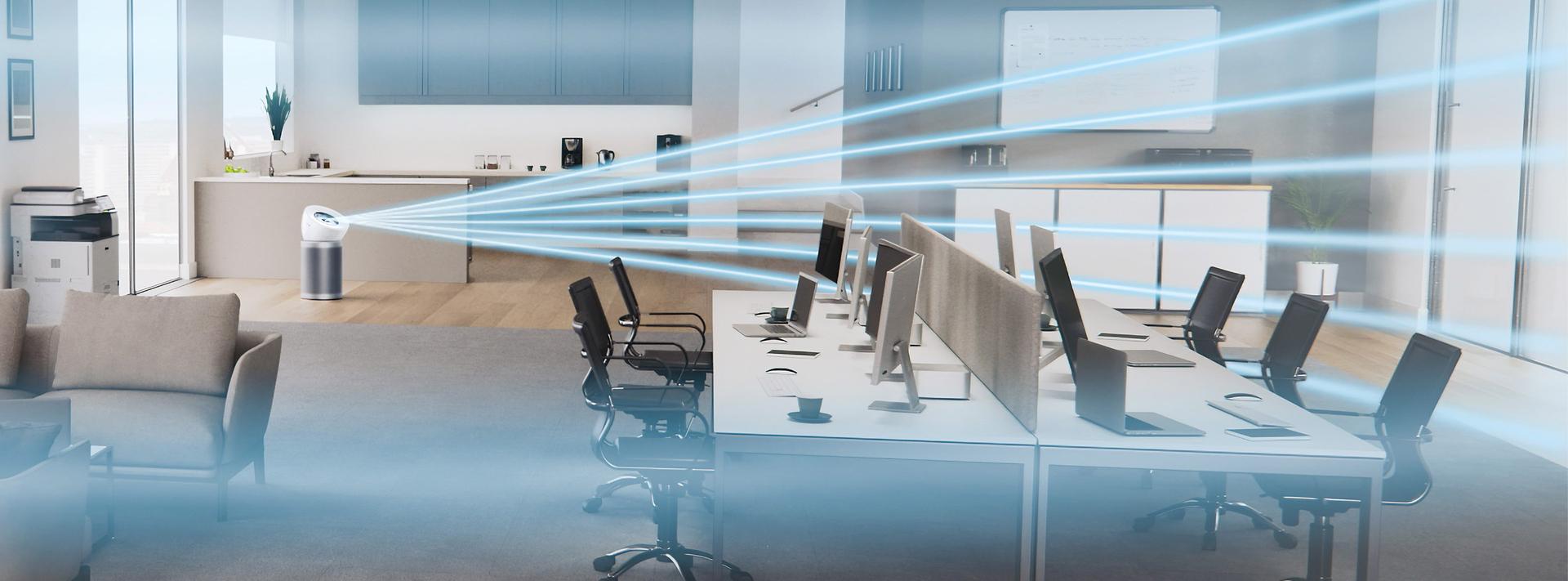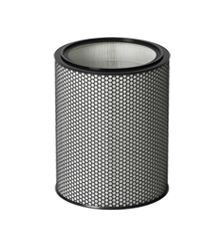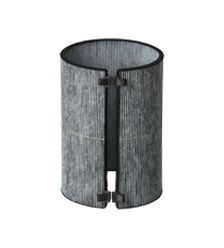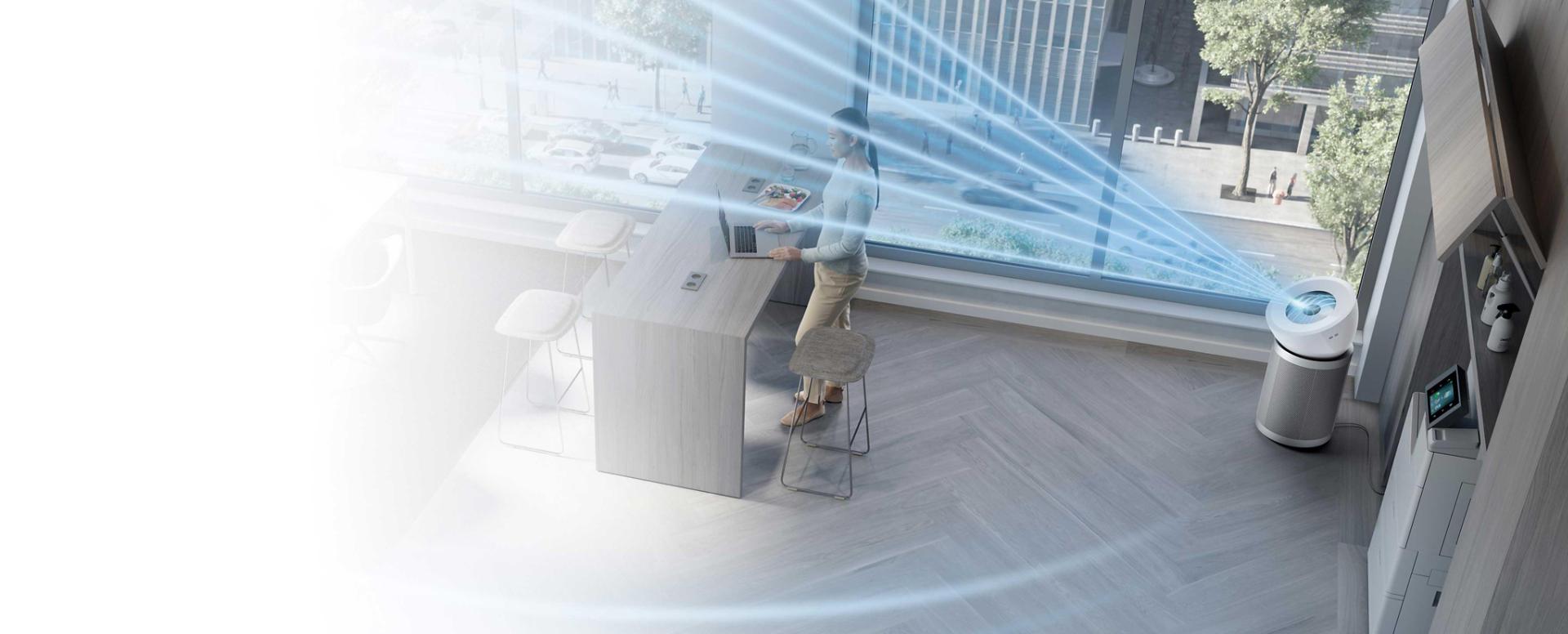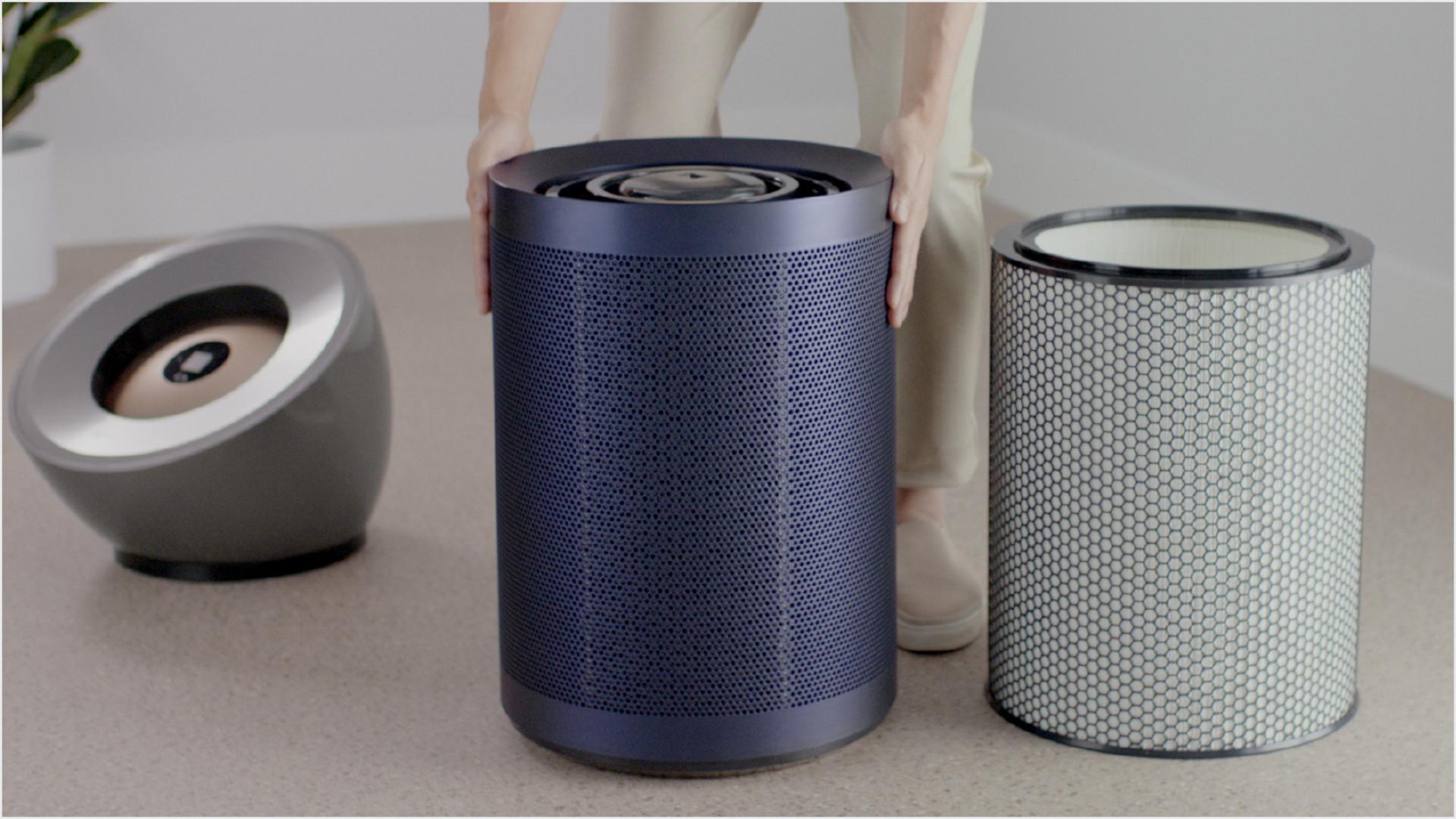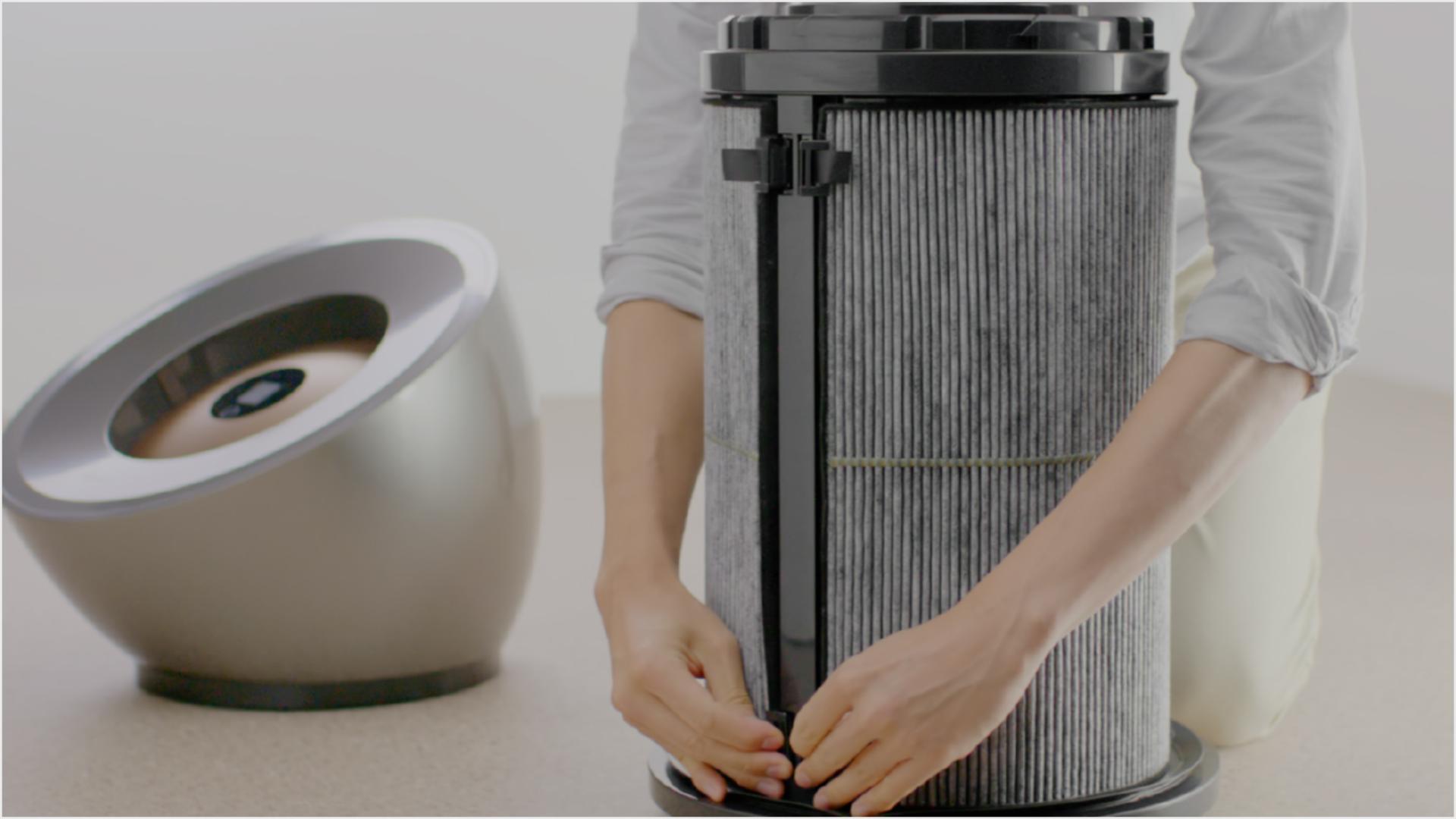
Dyson's quietest, most powerful air purifier yet.
Purifies rooms up to 100m², evenly.1
Engineered for professional environments such as offices, classrooms and hotels.
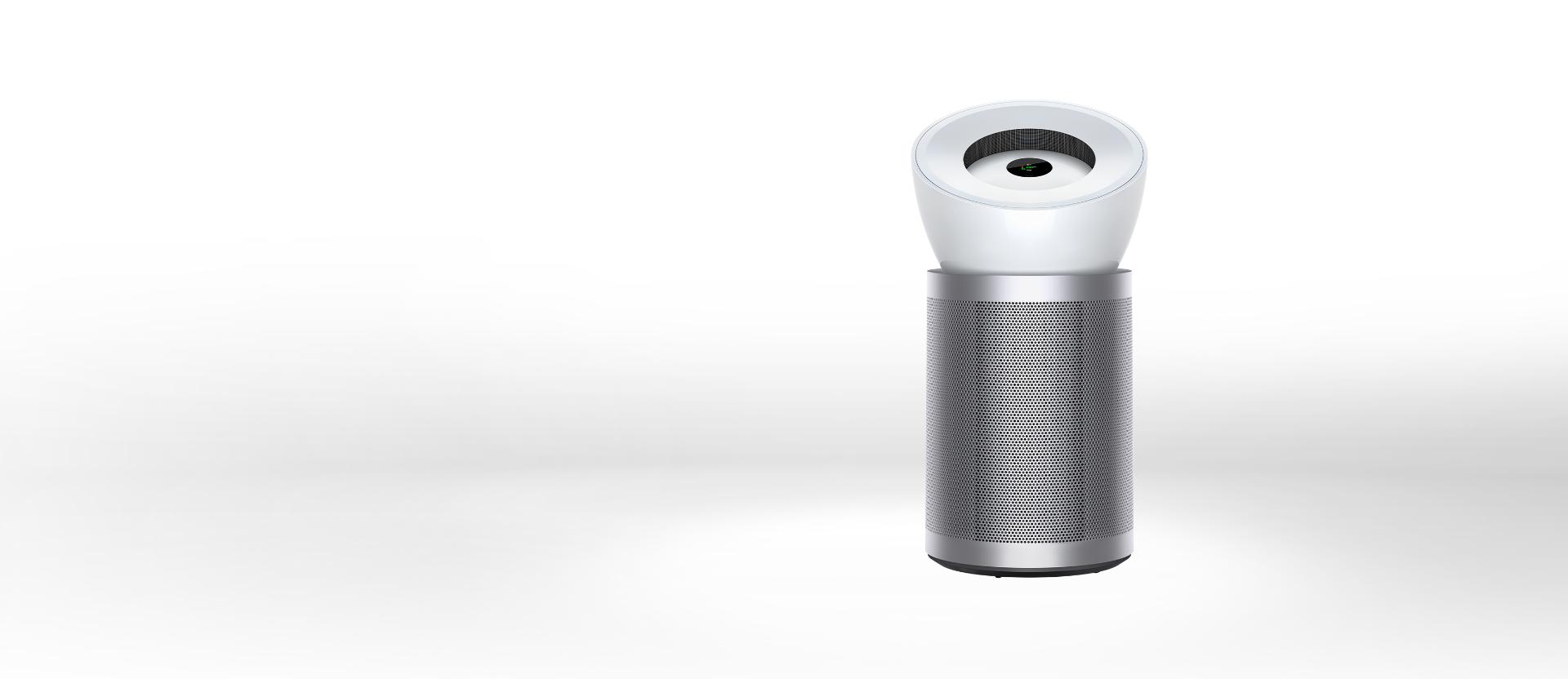
Specifications
-
Fixed angle
50°
Cord length
1,800mm
Carbon filter life
8,760 hrs
Standby power consumption
<0.5w
Low airflow setting
50 ltrs/second
Room coverage
100m²
Quiet setting
43dBA -
High airflow setting
90 ltrs/second
Weight
11.57kg
Maximum setting
55.6dBA
HEPA filter life
21,900 hrs
Height
830mm
Length
434mm
Width
415mm -
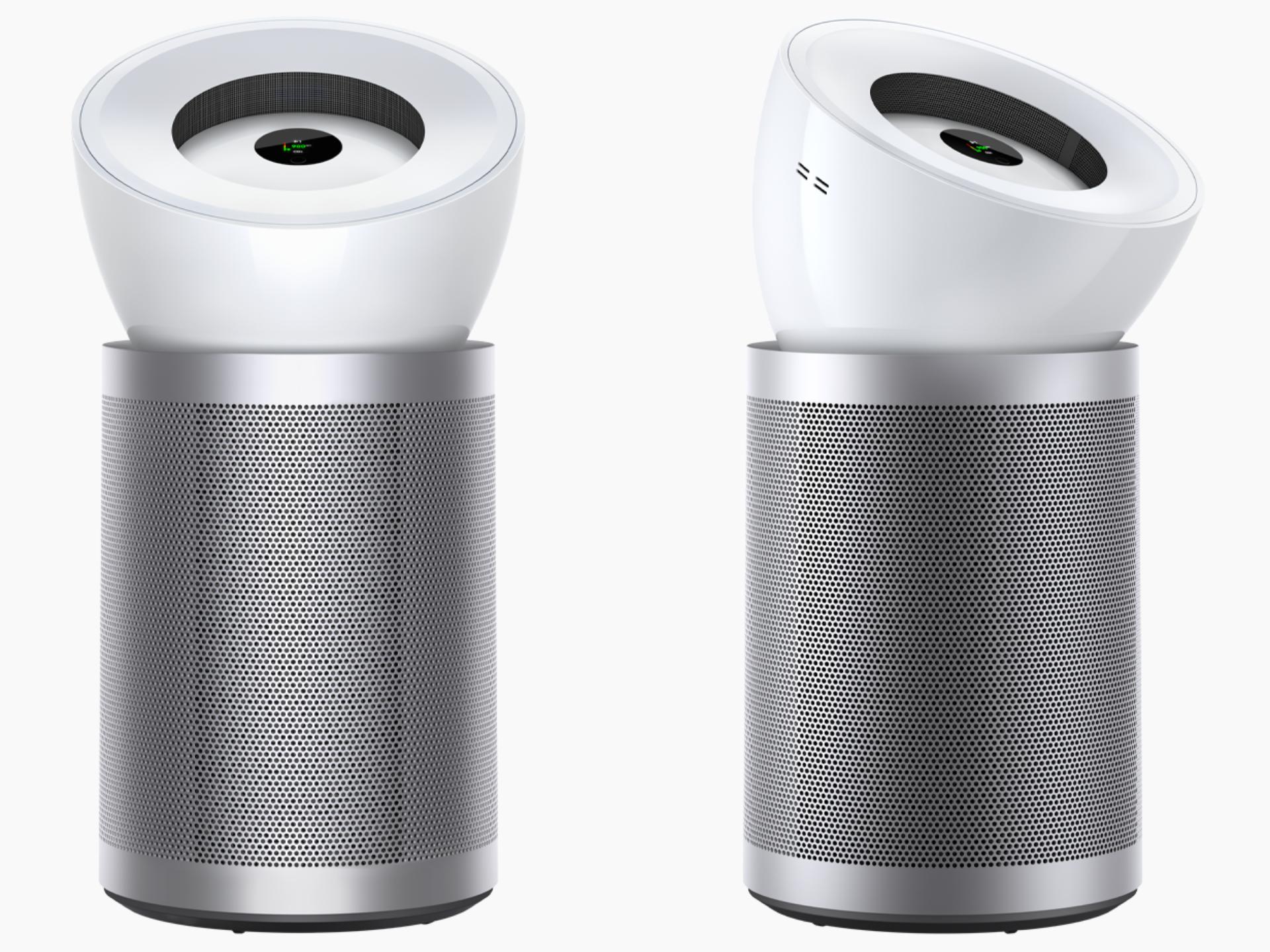
It's our business to understand air pollution, so yours doesn't suffer
Workspaces can harbour pollutants such as viruses, bacteria, Volatile Organic Compounds (VOCs), pollen and formaldehyde. Everyday items such as cleaning products and printers, furniture and flooring, can release potentially harmful microscopic particles, and remain in the air for many years.3
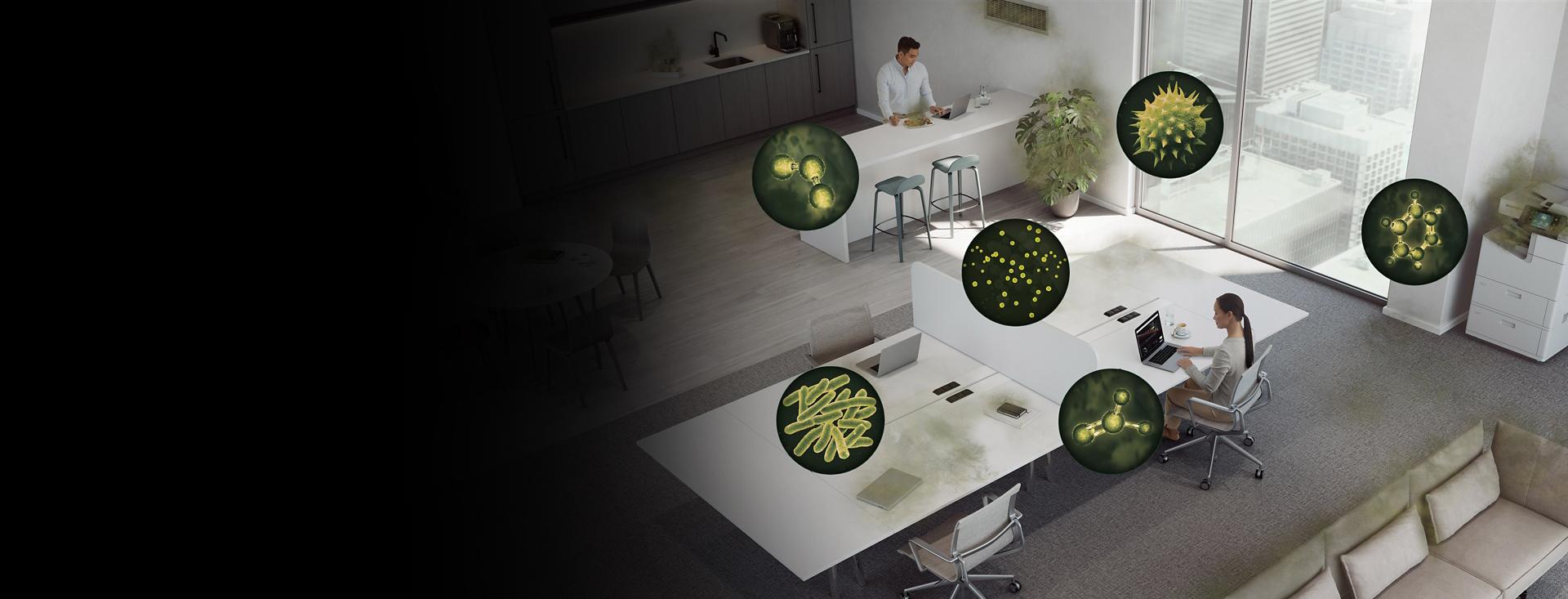
Dyson purifiers remove these common pollutants from commercial environments
-
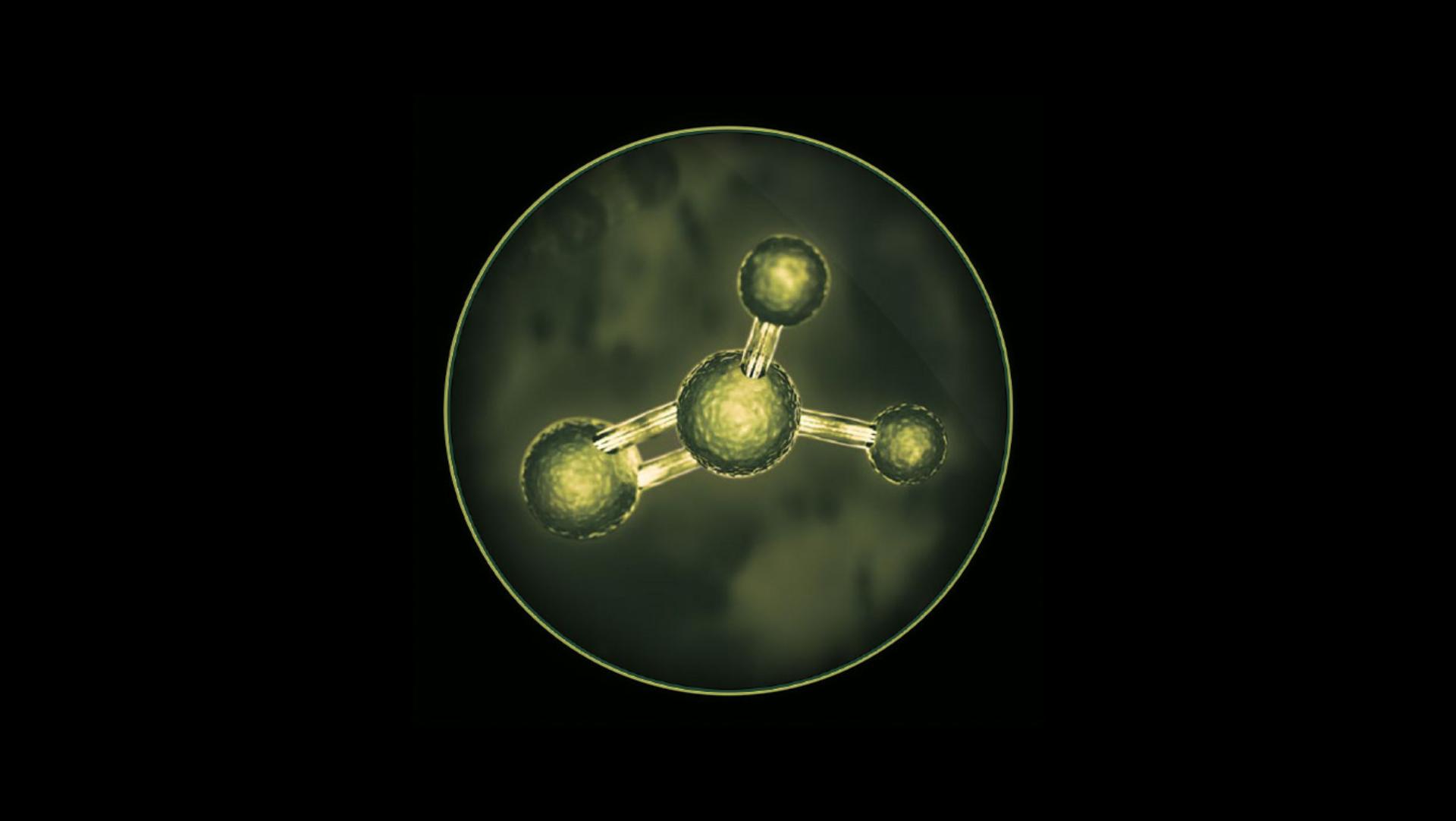 Paint, varnishes and printersFormaldehyde
Paint, varnishes and printersFormaldehyde -
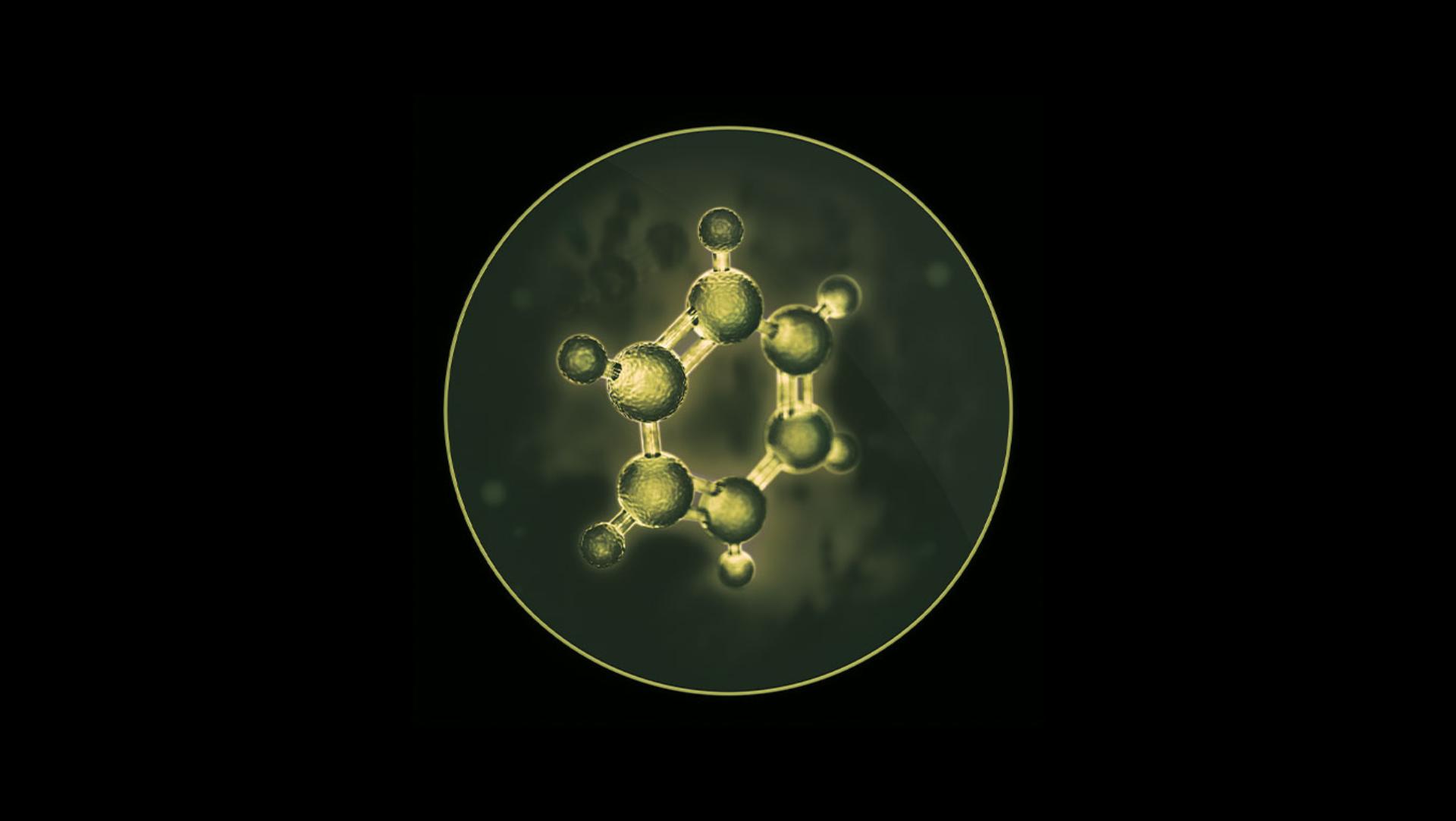 Traffic, building materials and furnitureBenzene and VOCs
Traffic, building materials and furnitureBenzene and VOCs -
 Fumes and cookingOdours
Fumes and cookingOdours -
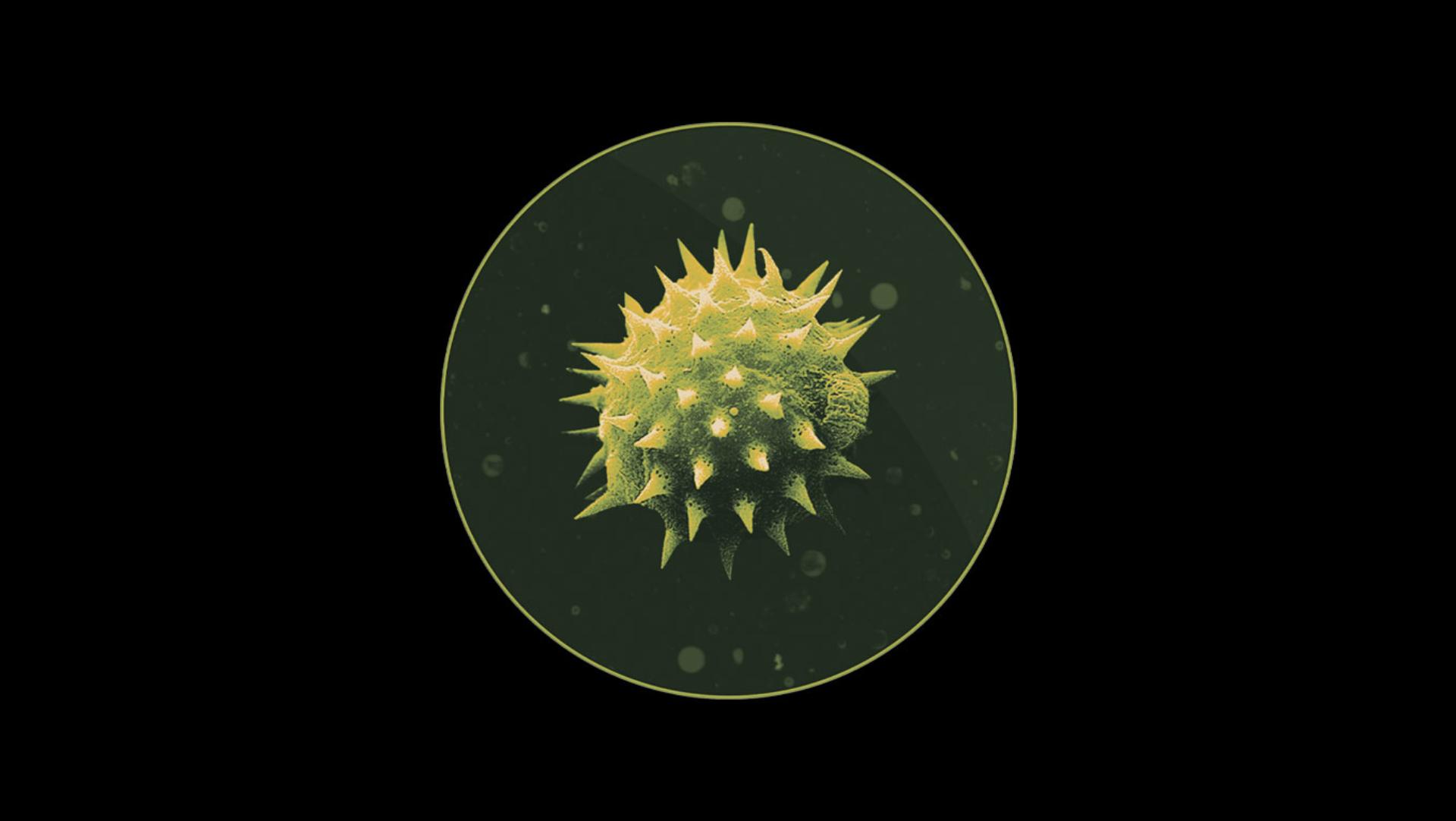 Pollen, dust and allergensPM10
Pollen, dust and allergensPM10 -
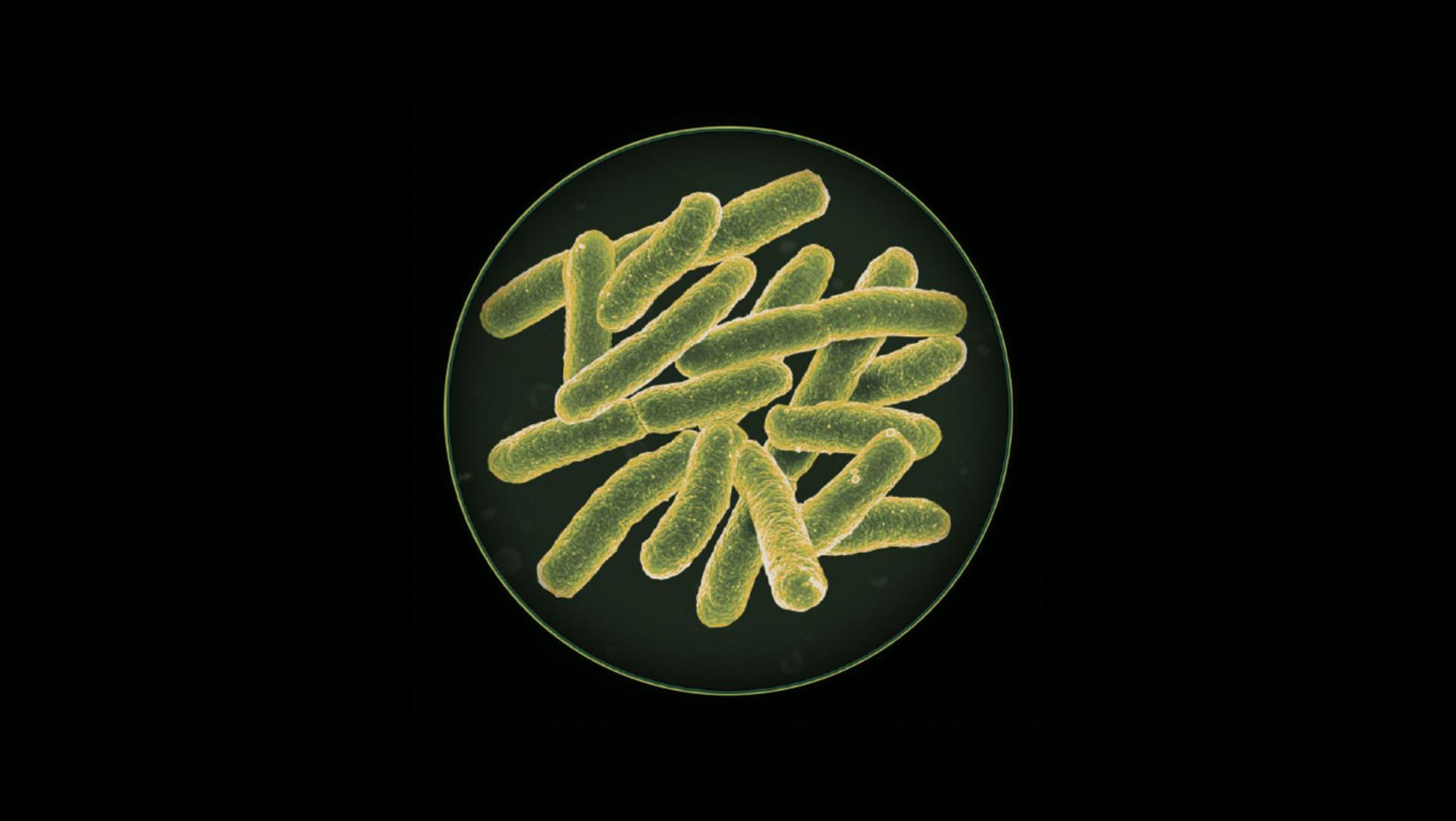 Bacteria and mouldPM5
Bacteria and mouldPM5 -
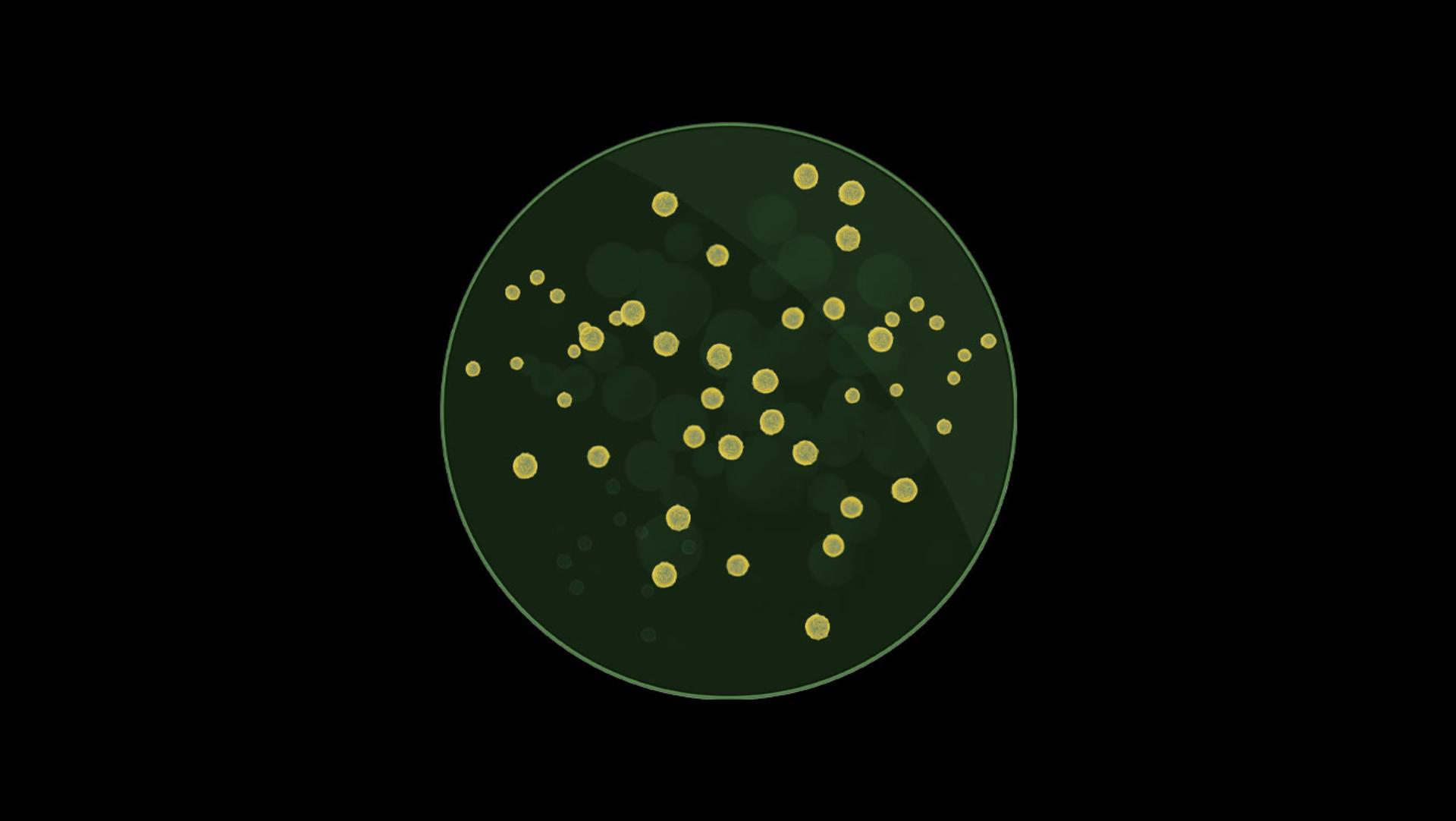 Ultrafine particlesPM0.1
Ultrafine particlesPM0.1
Senses, captures and destroys
-
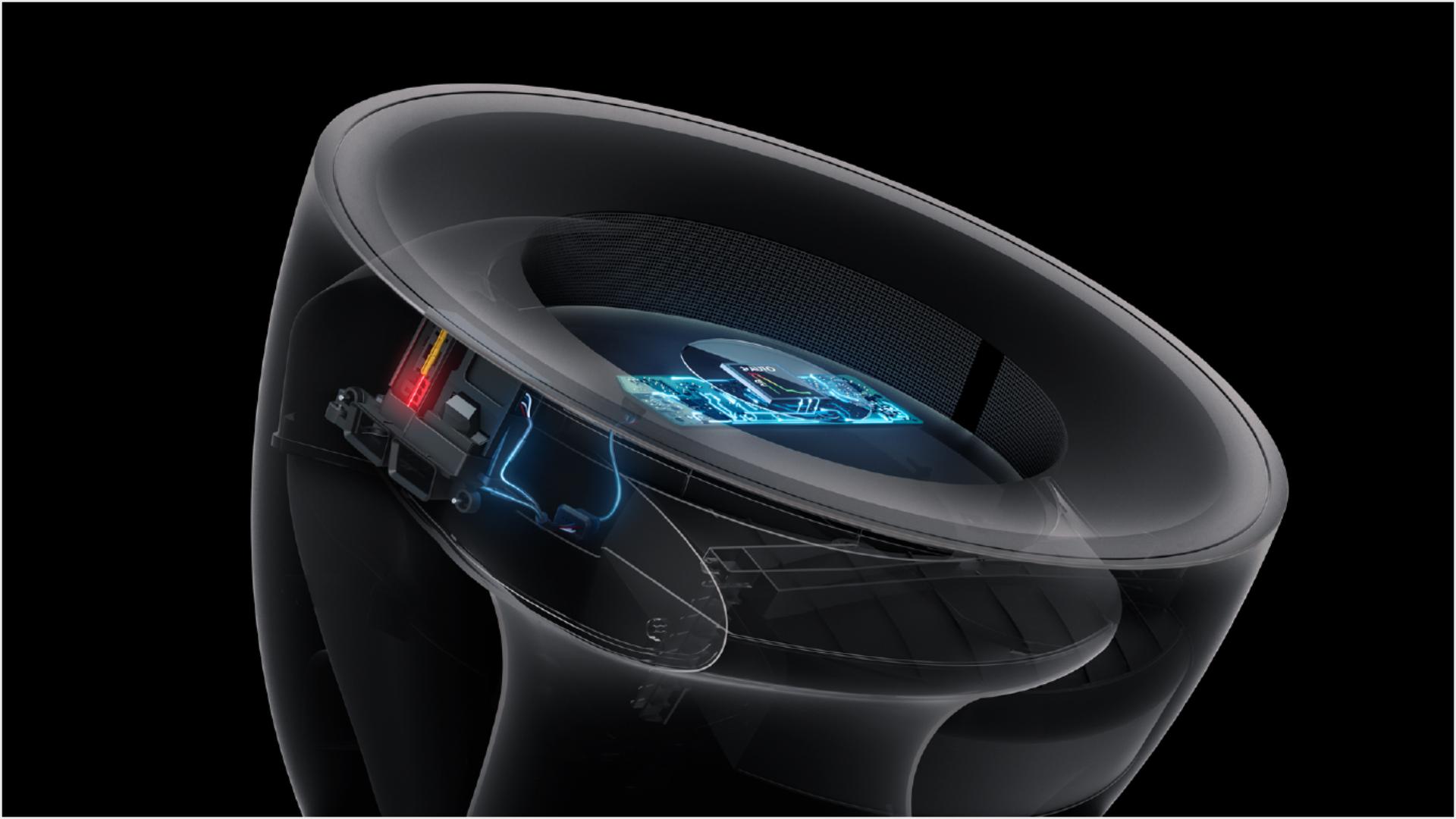
Senses and reports CO2 levels
1.44 inch LCD screen displays carbon dioxide readings and airflow mode – senses and reports air quality levels in real time.
-
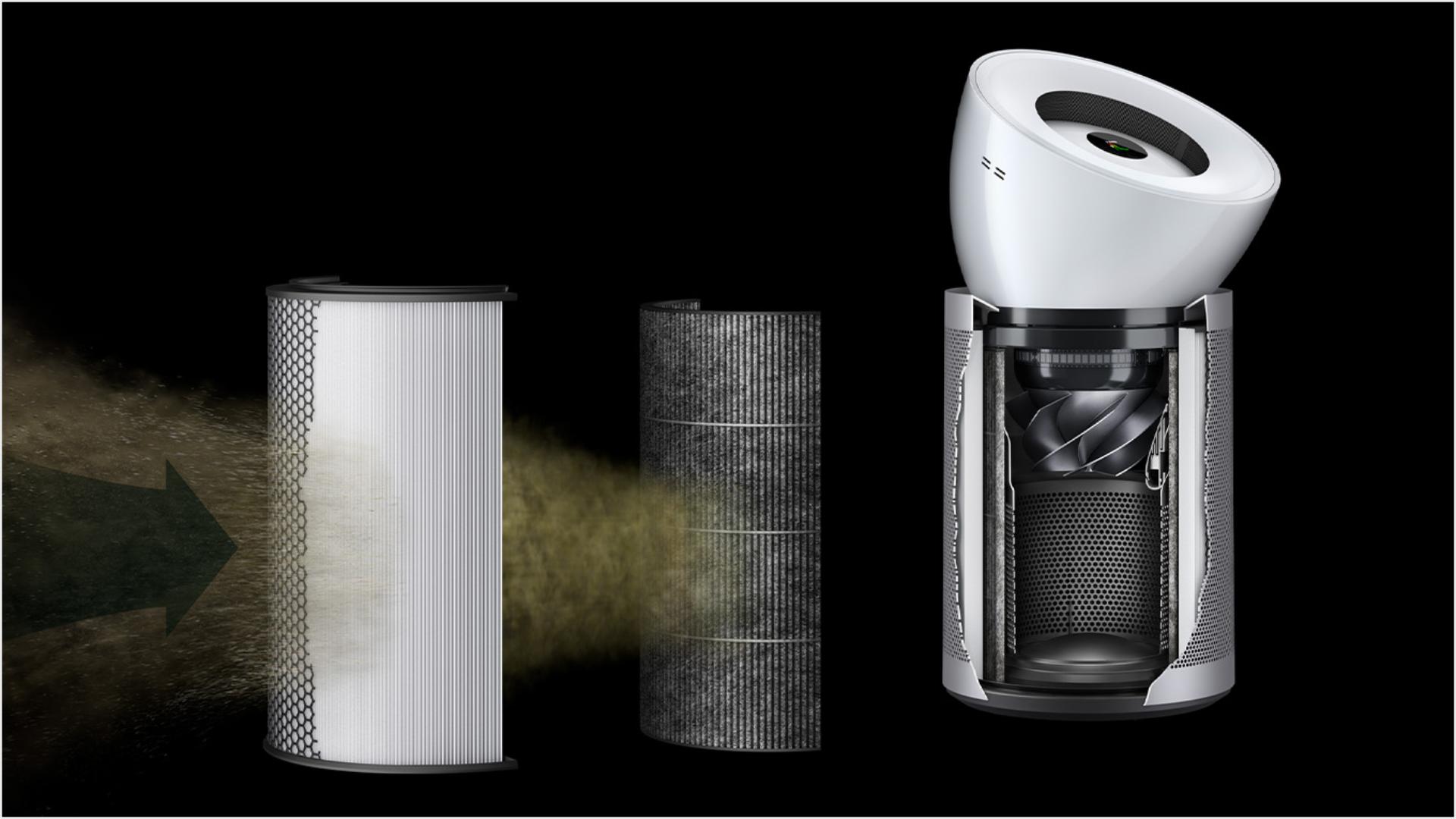
Whole-machine HEPA 13 filtration2
Three phases of purification draw pollutants in from all directions. And the whole machine is fully sealed to HEPA H13 standard – so what goes in, stays in.
-
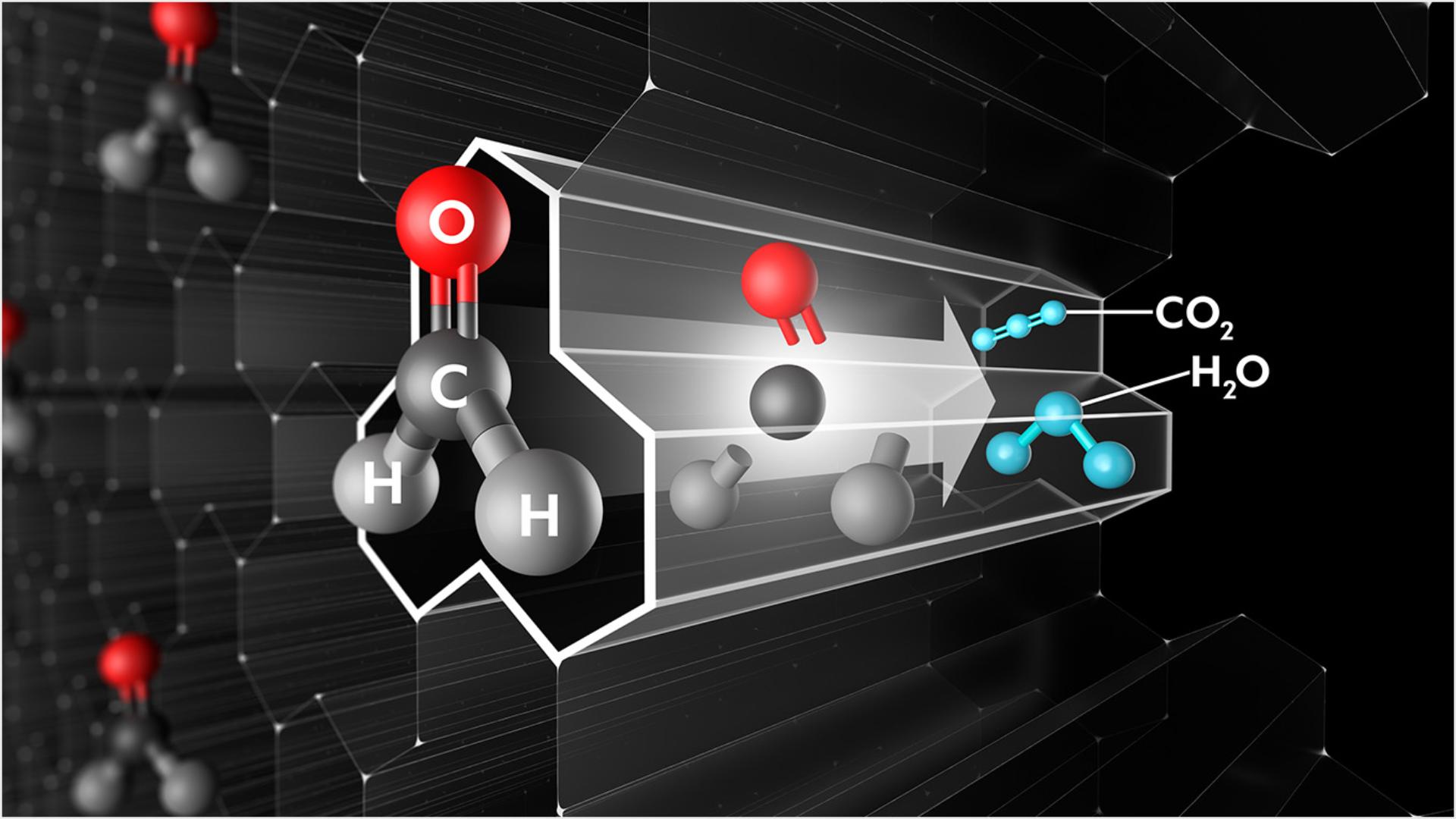
Destroys formaldehyde, continuously3
The solid-state formaldehyde sensor works simultaneously with a selective catalytic oxidisation filter, to destroy formaldehyde molecules 500x smaller than 0.1 microns.
Powerful and quiet
The high-velocity, low-pressure system produces low noise levels of just 55.6dB.
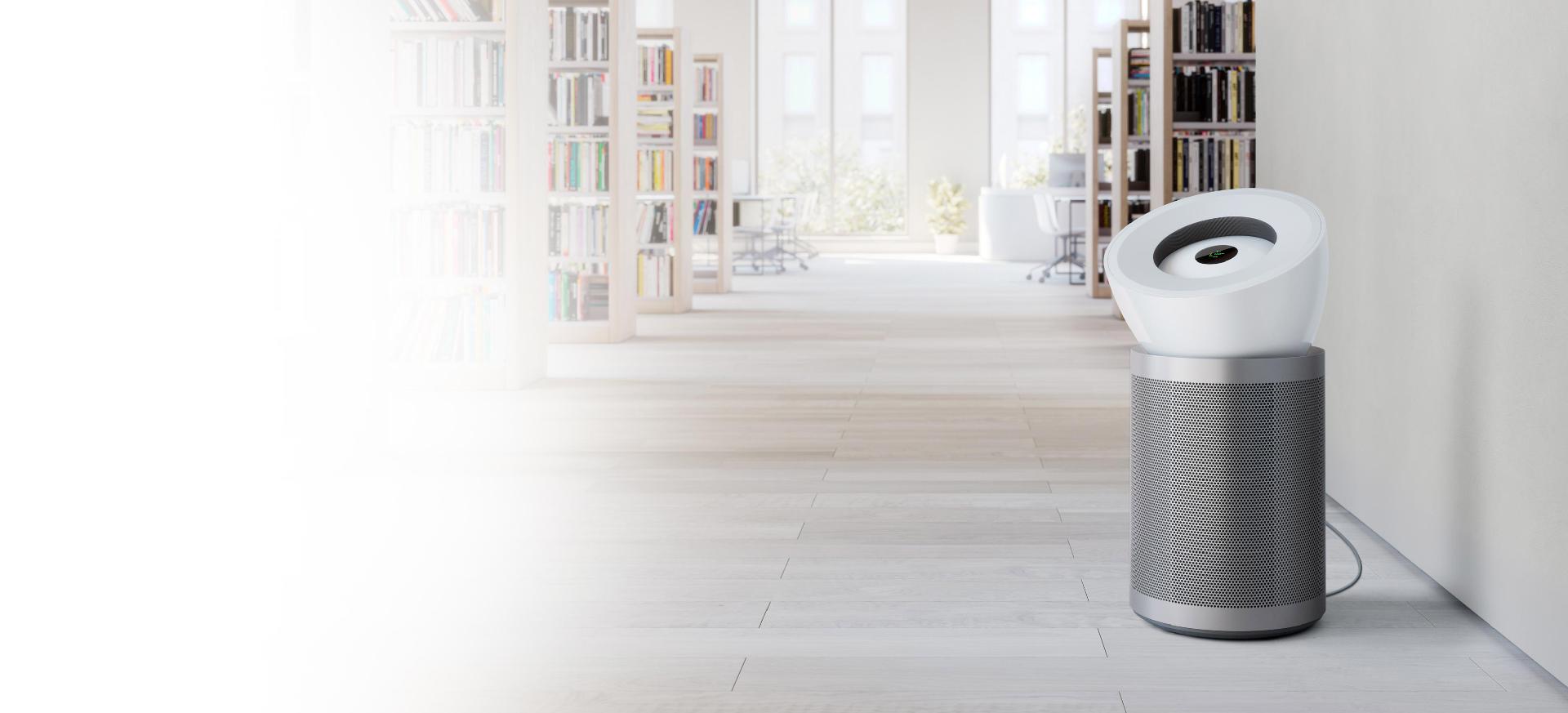
Acoustically engineered
The Helmholtz silencer traps sound energy and reduces low frequency noise, while the motor mount reduces vibration – so the little noise you hear, is quiet even at full power.
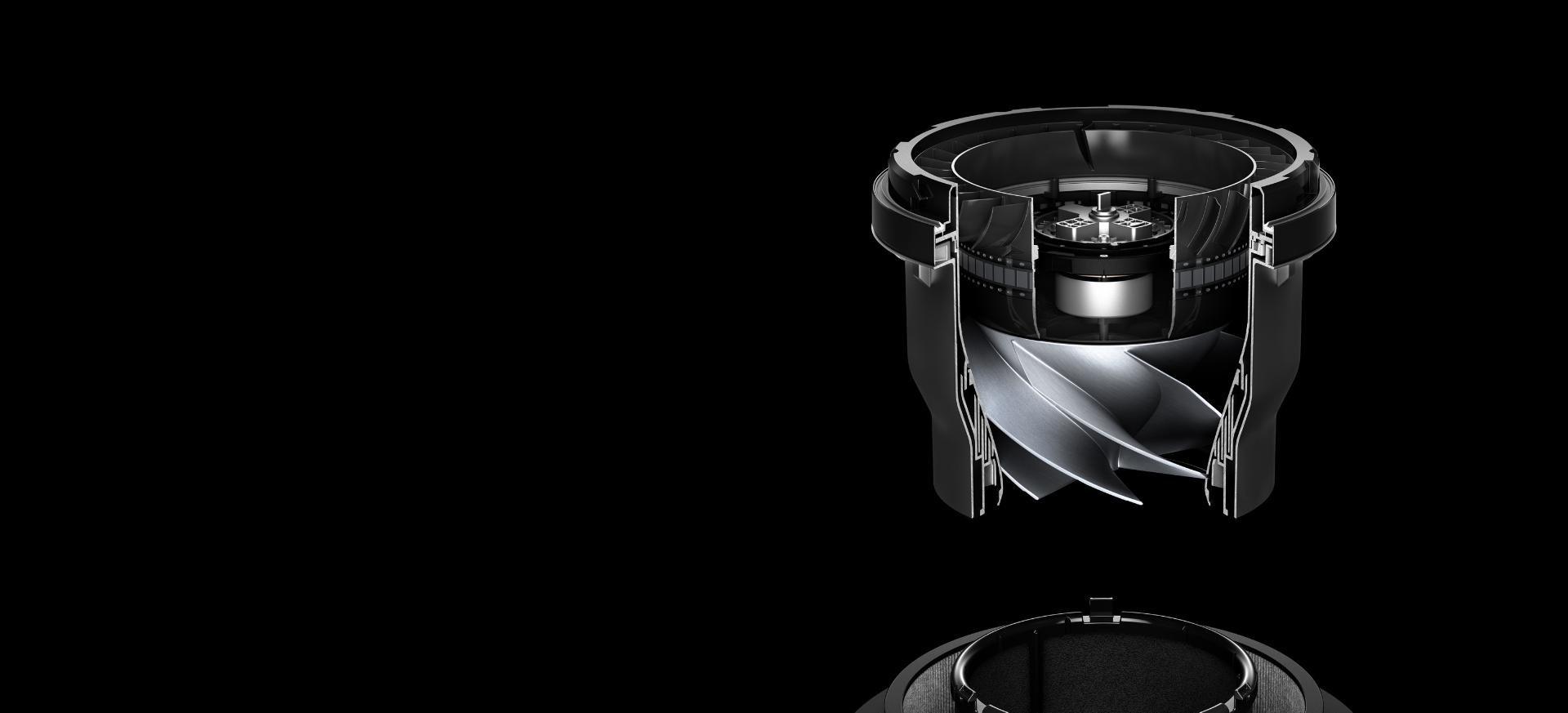
Additional features
-
HEPA filter
The HEPA filters contain 21 metres of borosilicate microfibres, pleated over 450 times, and lasts 21,900 hours.
-
Activated carbon filter
430,000m² of activated carbon captures microscopic particles, and lasts 8,760 hours.
-
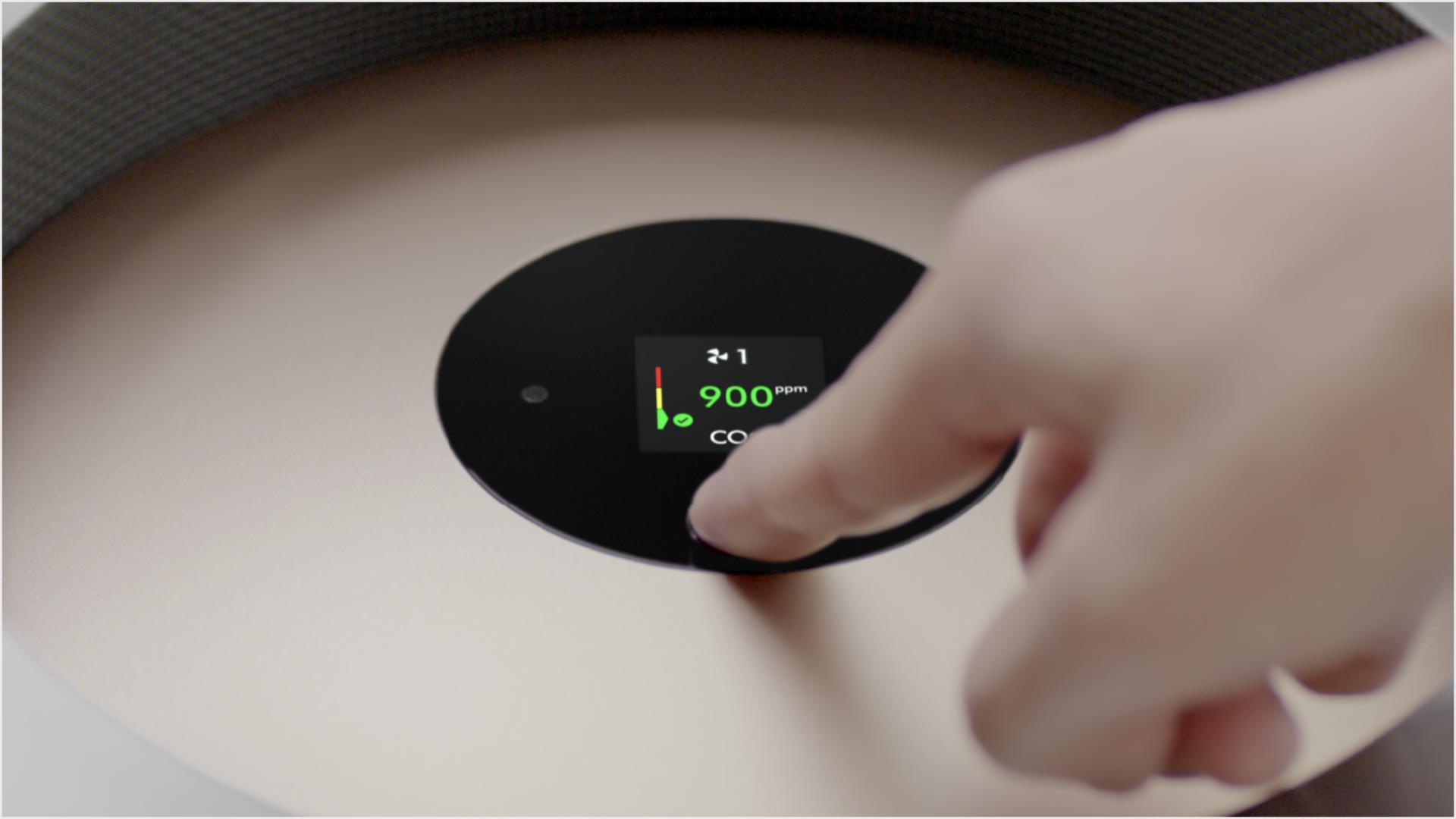
Single button operation
Two airflow speeds to increase or decrease airflow when needed.
Frequently asked questions
Our latest purifier is acoustically engineered to operate quietly – even at its highest power setting. So it reduces your exposure to pollution, without disturbing you at the office or in the classroom. It records just 55dBA of sound power at full speed.
In Dyson’s latest purifiers, it’s not just the filter that meets HEPA H13 standard, it’s the whole purifier. So they don’t just capture pollutants, they prevent them from leaking back into the air you breathe. High-pressure seals at 24 critical points, combined with Dyson’s fully-sealed filtration system, means our whole purifier meets HEPA H13 standard. So what goes inside, stays inside.
Some manufacturers publish dB readings based on Sound Pressure levels, which can be easily manipulated by changes in the environment. They might also be tested at low fan speeds which can limit purification performance.
At Dyson we measure and publish Sound Power levels dB(A) – the pure reading taken directly from the machine – at maximum fan speed, where purification is at its optimum.
Increased CO2 levels can impact cognitive function. Our latest purifier senses and reports CO2 levels and notifies when they exceed recommended levels, alerting on the LCD screen when to ventilate.
2Particle challenge by DEHS oil specified in EN1822 within a chamber specified in ASTM F3150. Tested in Max Mode at IBR US, for whole machine efficiency above 99.95%.
3Third party full machine testing based on GB/T 18801-2022 formaldehyde cumulative clean mass testing with continuous injection until plateau of formaldehyde CADR is achieved. Results may vary in practice.
4Tested for filtration efficiency at 0.1 microns (EN1822, ISO29364).
5Tested to JEM 1467 (acetic acid, acetaldehyde, ammonia), GB/T18801 (formaldehyde, benzene) and DTM-003282 (NO2). Gas capture rates vary.
6The ability of purifying a large room up to 100m2 (10m*10m) proven from a Computational Fluid Dynamics (CFD) modelling, with the purifier placed in a corner of the room running at the maximum flow and horizontal projection reaching 10 metres to fully mix the room. The projection distance was measured from internal flow reach testing under the maximum directional airflow. The actual performance in real life condition may vary.
